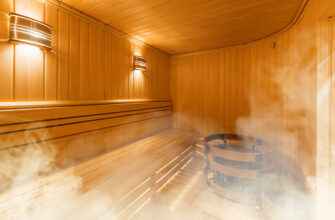The gallbladder is a small organ that plays an essential role in our digestive system. It stores and releases bile, which helps to break down fat from the food we eat. However, sometimes the gallbladder may not function properly, and this can cause a range of symptoms. Here are 10 early signs and symptoms of gallbladder issues.
1. Abdominal pain
One of the most common symptoms of gallbladder issues is abdominal pain. This pain usually occurs in the upper right part of the abdomen and may be described as a dull ache or a sharp, stabbing pain. The pain may also radiate to the back or shoulder.
2. Nausea and vomiting
Nausea and vomiting can also be symptoms of gallbladder problems. These symptoms may occur in conjunction with abdominal pain or separately. If you experience persistent nausea and vomiting, you should seek medical attention.
3. Fever and chills
In some cases, gallbladder issues may cause a fever and chills. These symptoms may indicate an infection or inflammation of the gallbladder, which requires immediate medical attention.
4. Jaundice
Jaundice is a condition that causes yellowing of the skin and eyes. It can be a symptom of gallbladder issues, as bile can build up in the bloodstream when the gallbladder is not functioning correctly.
5. Clay-colored stools
If your stools are clay-colored, it may be a sign of gallbladder problems. This is because bile is responsible for giving stools their brown color, and if bile is not being released properly, the stools may appear pale or clay-colored.
6. Indigestion
Indigestion, or dyspepsia, is a common symptom of gallbladder problems. It can cause a feeling of fullness, bloating, and discomfort after eating, particularly after eating high-fat foods.
7. Gas and bloating
Gas and bloating can also be symptoms of gallbladder issues. These symptoms may occur in conjunction with other digestive symptoms or separately.
8. Diarrhea
Diarrhea can be a symptom of gallbladder issues, particularly if it occurs after eating high-fat foods. This is because the gallbladder is responsible for releasing bile to help break down fats, and if it is not functioning correctly, this process may be disrupted.
9. Fatigue
Fatigue can be a symptom of gallbladder issues, particularly if it is accompanied by other symptoms such as abdominal pain or nausea. If you experience persistent fatigue, you should seek medical attention.
10. Anxiety and depression
Anxiety and depression can be symptoms of gallbladder issues, particularly if they are accompanied by other symptoms such as abdominal pain or indigestion. This may be due to the impact that digestive issues can have on mental health.
In conclusion, if you experience any of these symptoms, it is important to seek medical attention. Gallbladder issues can be treated with medication, dietary changes, or in severe cases, surgery. Early detection and treatment can help to prevent complications and improve your overall health and well-being.











